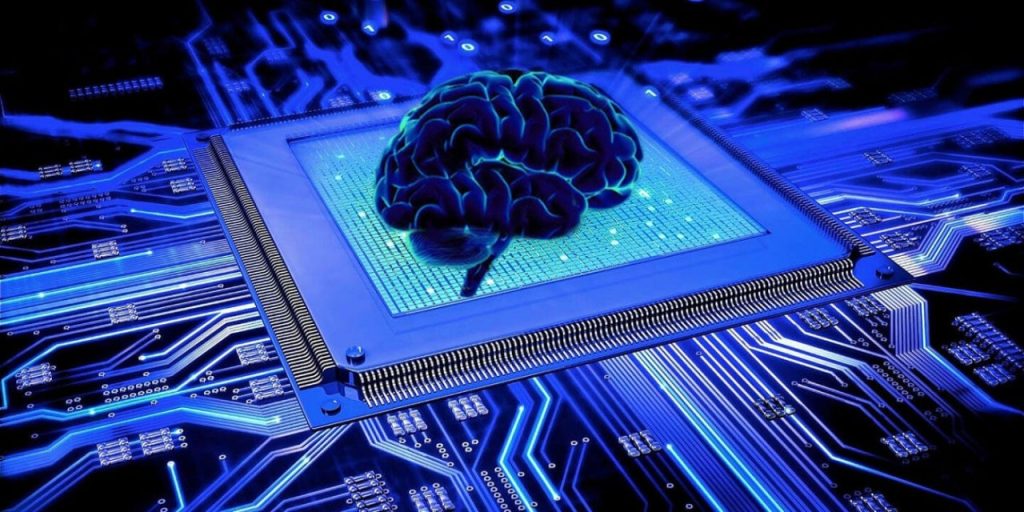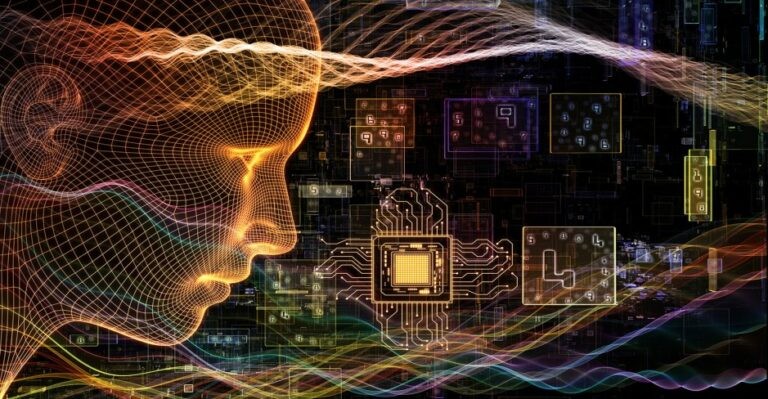Unlocking Quantum Computing and AI Potential through Quantum Machine Learning.
In the fast-paced realm of technology, two domains have emerged as frontrunners in shaping the future: Quantum Computing and Artificial Intelligence (AI). Quantum Computing, rooted in the principles of quantum mechanics, promises unprecedented computational power, while AI has already made significant strides in revolutionizing industries through data analysis and decision-making capabilities. However, the convergence of these two domains heralds a new era of innovation, marked by the emergence of Quantum Machine Learning (QML).
This interdisciplinary field bridges the gap between Quantum Computing and AI, offering a novel approach to problem-solving and computational tasks. In this expansive exploration, we delve into the convergence of Quantum Computing and AI, unraveling the intricacies of quantum artificial intelligence and quantum machine learning, while envisioning the boundless potentials they offer for the future.
Table of Contents
Understanding Quantum Computing and AI:
Before delving into Quantum Machine Learning, it’s essential to grasp the foundational principles of Quantum Computing and AI. Quantum Computing operates on the principles of quantum mechanics, allowing quantum bits or qubits to exist in multiple states simultaneously, unlike classical binary bits. This unique property enables quantum computers to perform computations at an exponential scale, promising breakthroughs in solving complex problems.
On the other hand, AI encompasses a broad spectrum of technologies and methodologies aimed at enabling machines to perform tasks that typically require human intelligence. Machine Learning, a subset of AI, leverages algorithms and statistical models to enable systems to learn from data and improve their performance over time. AI has already demonstrated its transformative potential across various domains, from image recognition to natural language processing.

The Emergence of Quantum Machine Learning:
Quantum Machine Learning represents the convergence of Quantum Computing and AI, offering a new paradigm for solving complex computational challenges. At its core, QML leverages the unique properties of quantum systems to enhance machine learning algorithms. By harnessing quantum parallelism, superposition, and entanglement, QML algorithms aim to explore vast solution spaces more efficiently than classical algorithms, potentially outperforming them in optimization, pattern recognition, and data analysis tasks.
Key Concepts in Quantum Machine Learning:
Quantum Neural Networks:
Quantum neural networks serve as the quantum analogs of classical neural networks, with qubits replacing classical bits as the fundamental processing units. These networks leverage quantum parallelism and entanglement to perform computations that surpass the capabilities of classical architectures. Quantum neural networks hold promise for applications such as image recognition, language translation, and quantum state tomography.
Quantum Algorithms for Machine Learning:
Quantum algorithms tailored to machine learning tasks exploit quantum properties to enhance performance. Examples include quantum versions of clustering algorithms, support vector machines, and dimensionality reduction techniques. These algorithms leverage quantum parallelism and interference to accelerate computations, particularly for large-scale data processing tasks.
Quantum-enhanced Optimization:
Optimization is a fundamental component of many machine learning algorithms, and quantum computing offers the potential for significant speedups in optimization tasks. Quantum annealing and variational algorithms enable the exploration of complex optimization landscapes more efficiently, with applications ranging from financial portfolio optimization to hyperparameter tuning in deep learning models.

Applications of Quantum Artificial Intelligence:
The convergence of Quantum Computing and AI holds promise for transformative applications across diverse domains:
Drug Discovery:
Quantum machine learning techniques have the potential to revolutionize drug discovery by accelerating the process of molecule screening and property prediction. Quantum simulations enable researchers to model molecular interactions with unprecedented accuracy, facilitating the design of novel drugs and personalized medicine approaches.
Financial Modeling:
Quantum algorithms can revolutionize financial modeling by enabling faster and more accurate risk assessments, portfolio optimizations, and fraud detection mechanisms. Quantum machine learning techniques can uncover hidden patterns in financial data, leading to more informed investment decisions and enhanced risk management strategies.
Climate Modeling:
Climate modeling requires vast computational resources to simulate complex environmental systems accurately. Quantum computing offers the potential to accelerate climate simulations, enabling researchers to better understand climate dynamics, predict extreme weather events, and assess the impact of human activities on global ecosystems.

Challenges and Future Directions:
Despite its immense potential, Quantum Machine Learning faces several challenges on the path to widespread adoption. One of the primary hurdles is the current limitations of quantum hardware, including high error rates, short coherence times, and limited qubit connectivity. Overcoming these challenges will require significant advancements in quantum hardware, error correction techniques, and algorithmic innovations.
Furthermore, integrating quantum algorithms with existing machine learning frameworks presents challenges, as it demands expertise in both quantum computing and classical machine learning. Bridging this interdisciplinary gap will necessitate collaborative efforts among researchers, educational initiatives, and the development of hybrid classical-quantum computing platforms.
Looking ahead, the future of Quantum Machine Learning holds tremendous promise. As quantum hardware continues to evolve and algorithms become more sophisticated, we can anticipate exponential growth in applications spanning healthcare, finance, climate science, and beyond. By unlocking the synergies between Quantum Computing and AI, Quantum Machine Learning is poised to drive transformative advances that could reshape industries, accelerate scientific discovery, and address pressing global challenges.
Conclusion:
In conclusion, Quantum Machine Learning represents a convergence point for Quantum Computing and AI, ushering in a new era of computational capabilities and problem-solving paradigms. By harnessing the principles of quantum mechanics to enhance machine learning algorithms, QML has the potential to revolutionize industries, accelerate scientific discovery, and address some of humanity’s most pressing challenges. As researchers continue to push the boundaries of Quantum Machine Learning, we stand on the precipice of a future where quantum artificial intelligence unlocks untapped potentials, propelling us into a realm of innovation and discovery limited only by our imagination.

